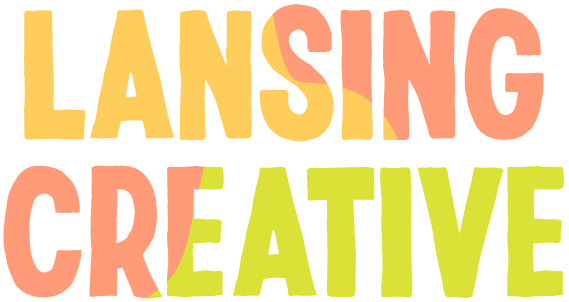Are Instagram Filters Bad? My Thoughts as a Filter Creator…
Instagram filters are not a new thing, but recently we’ve seen a rise in backlash, especially against beauty filters, smoothing, and face deformation effects.
I want to share what the debate is about, if you’ve missed it, Instagram’s reaction, and my thoughts. Then I’ll share my tips for filter creators and filter users on how to make and share filters more responsibly.
It’s important to know that I do design custom IG filters for my clients, so my thoughts and opinions come from that insight and perspective.
The Debate
IG filters, which use AR (augmented reality) technology, have recently been heavily scrutinized for their part in creating and perpetuating false beauty standards, particularly for women and female entrepreneurs.
The debate that I see is mostly about Instagram filters. But, I think some of the recent conversation is inspired by the rise of undisclosed beauty filters on Tik Tok and the use of apps like Snow. While Instagram mostly lists when a someone is using a filter, apps like Snow make it easier for users to lie about filter use.
As AR technology gets better, filters become more and more realistic. If you haven’t tried out the app Snow, I encourage you to try it and have your mind blown.
IG does disclose filters (they are listed at the top of stories on mobile), but of course there are ways around that. Other platforms, like Tik Tok and YouTube, have even less rules around disclosing filter use, so it’s even easier for users to lie or omit that information.
The immediate problem is that people are using filters and face smoothing to sell makeup products or skincare. This is, of course, a lie, because you can’t see how a foundation reacts with a filter on.
Although, I think the bigger problem in our space is that, firstly, it may undo some of the work female entrepreneurs have done to normalize “selling in sweatpants” if you will, because it’s so easy to slap on a filter if you haven’t done your makeup.
Second, especially in the lifestyle and coaching space, filters become a problem when your appearance can help sell your products, even if you’re not selling. For example, looking put together with your nails done and makeup on helps sell the lifestyle of “when you make 10k months, you will have the time and money to focus on these physical things”. Even if you’re not immediately selling a program, how you show up is the embodiment that sells your services.
So it’s a hard line to draw. That’s what worries me, and I think is a bigger issue in our community.
Instagram’s Reaction
So, Instagram isn’t really reacting to this specific situation, but they do have some rules around filters.
First, Instagram does list filter use on stories on tablet and mobile devices, although not on desktop, or on Instagram lives.
Also, a few years ago Instagram banned any filters that use “plastic surgery” type effects (their wording), but really they don’t enforce that in practice. We see new filters that slim your nose and make your lips bigger all the time.
As far as I know, there are no rules for creating advertising or sponsored content using filters, disclosed or undisclosed.
My Thoughts
As I mentioned, my biggest concern is more in lifestyle-type selling, where an influencer or creator is embodying a lifestyle that they are then going to sell to others. Honestly, I don’t foresee a lot of people in the Instagram business space selling makeup products with filters on, but it does happen.
As a human, I see that any harm filters cause disproportionately affects women. We’ve been having this debate for years, and seemingly as soon as magazines and print ads have started reforming, now we are fighting this fight all over again with digital media.
As a creator, though, I’m always hesitant to stifle creativity. Especially in AR, which is such a new emerging space, and where hobbyist creators are developing amazing effects. I don’t think we should just ignore all the amazing advances in this space.
In my opinion, just because a new technology can be used badly doesn’t mean we should stifle the whole field. Instead, I think we as creators and users can be more responsible for using filter and AR technology more conscientiously
How Instagram Can Do Better
Instagram can start listing filter use on desktop stories, Instagram lives, and all other uses so that filter use is always disclosed.
Instagram can make more rules about using filters in sponsored content, or require creators to disclose when they use filters in advertising. This would include outside or non-native filtering effects like the Snow app.
Perhaps under their filter names, Instagram can list “contains beauty effects” in any filter that has smoothing, deformation, or makeup properties, which would be easy enough to detect automatically. This, of course, still assumes that people aren’t using tricks to make the labeling disappear.
Filter Creators: How We Can Do Better
First, don’t market to insecurities. I’ve made it a rule in my marketing that I will never say you need a filter to help you sell on stories when you don’t have your makeup on. You don’t need makeup on at all. You can sell without makeup, without nice clothes, without a filter. Stop using scare tactics to teach people otherwise.
Always specifically ask your clients if they want to use beauty tools like face smoothing or similar effects. I have a check box I’ve added to my intake form, so that consent is super clear.
Perhaps in the future, clients will want to choose to have a disclosure after their filter title, or add custom instructions. For example, your filter might be called “glowy pink (contains face smoothing)”. I haven’t tested this yet for approval but it would be another option to try.
Filter Users: How We Can Do Better
Always disclose which filters you are using if Instagram or the app you’re using isn’t already.
Don’t use filters when you are selling a product with which a filter would interfere, such as makeup or skincare. But also rethink about how you’re choosing to portray your image and lifestyle as you sell more non-tangible items like coaching, diet courses, etc.
In the end, you can use filters whenever you want, but be conscious about why you are using them. You don’t need a beauty filter to show up. You don’t need one to make more sales.
Conclusion
Filters are fun, but they should always be a bonus to what you already bring to the board as a person or brand. They are never a requirement to fill some lack in yourself.
If you enjoyed this type of content, repin it on Pinterest or share it with a friend. If you’d like to talk more about this issue, you can shoot me an email or find me on Instagram. I love talking with readers and hearing your opinions.
PS. As a filter designer, I can help you build a custom Instagram and Facebook filter that fits your brand and your ethics. Reach out to see how we can work together.
Want to talk more?
I would love to hear your thoughts, rants, or questions about this topic.
Click here and shoot me a DM on my Instagram, or click here to send me an email. I always love hearing your take on this!

